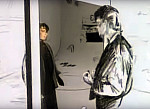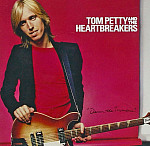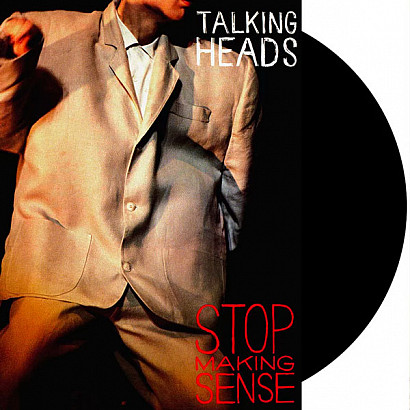19 OCTOBER
Featured Events
2012 Justin Timberlake marries actress Jessica Biel at a super-secret ceremony in Italy.
 1985 Thanks to an innovative video that takes place in a comic book, "Take On Me" gives the Norwegian group a-ha a #1 hit in America.More
1985 Thanks to an innovative video that takes place in a comic book, "Take On Me" gives the Norwegian group a-ha a #1 hit in America.More
1979 Prince releases his sophomore album, Prince, containing the #1 R&B hit "I Wanna Be Your Lover" and the original version of "I Feel For You," later a hit for Chaka Khan. It's his first album certified Platinum for sales over 1 million.
 1979 Following a vicious legal battle with MCA Records, the third Tom Petty & the Heartbreakers album, Damn The Torpedoes, is released on the label's new subsidiary, Backstreet Records.More
1979 Following a vicious legal battle with MCA Records, the third Tom Petty & the Heartbreakers album, Damn The Torpedoes, is released on the label's new subsidiary, Backstreet Records.More
1977 In Greenville, South Carolina, Lynyrd Skynyrd play their last show before the plane crash that kills three of their members. Nazareth is the opening act.
1958 In Nashville, Brenda Lee records "Rockin' Around The Christmas Tree." To get her in the Christmas spirit, her producer, Owen Bradley, sets up a Christmas tree and turns on the air conditioning.
19 OCTOBER
In Music History
2021 The TV series Queens, starring Brandy and Eve as members of a hip-hop group from the '90s who reunite in the '20s, debuts on ABC.
2014 Raphael Ravenscroft, who played the famous saxophone solo on "Baker Street," dies at age 60.
2013 Noel Harrison, whose "Windmills Of Your Mind" won an Academy Award for Best Original Song for the 1968 heist film The Thomas Crown Affair, dies of a heart attack at age 79.
2011 Texas-born blues pianist Earl Gilliam dies at age 81 of advanced lung disease.
2011 Blues guitarist John-Alex Mason, age 35, dies of complications after surgery to remove cancerous tissue.
2007 Trini Lopez is given the Lifetime Achievement honor at the Latinos of Distinction Awards in Ontario, California.
2006 Nick Valensi of The Strokes and his wife, photographer/actress Amanda de Cadenet, welcome fraternal twins, Silvan and Ella.
2005 Yusuf Islam, the singer/songwriter formerly know as Cat Stevens, is named songwriter of the year at the ASCAP Awards in London. Islam also receives the song of the year honor for "First Cut Is The Deepest," which was first released in 1967.
2004 Rolling Stones frontman Mick Jagger and Eurythmics co-founder Dave Stewart are the lead performers on the Alfie soundtrack. Jagger sings lead on about one-third of the songs, including the first single "Old Habits Die Hard." Another version with Jagger, Stewart and Sheryl Crow is included as a bonus track.
2001 Luciano Pavarotti is acquitted of tax evasion in a trial in his home town of Modena, Italy. The opera star, who was accused of owing the government $18 million for income earned from 1989-95, faced a nominal 18-month prison sentence.
1999 Primus issue their sixth studio album, Antipop. The song "Eclectic Electric" features guitar from James Hetfield of Metallica, and Jim Martin, formerly of Faith No More.
1997 Vince Gill honors John Denver with a performance of "Take Me Home Country Roads" at the Grand Ole Opry. Denver died a week earlier in a plane crash.
1997 After a number of health scares related to a lifetime of drug and alcohol abuse, original Alice Cooper guitarist Glen Buxton dies of viral pneumonia at age 49.
1995 Don Cherry, acclaimed trumpet player and father of Neneh and Eagle-Eye Cherry, dies of liver cancer at age 58.
1993 Counterparts, Rush's 15th studio album, hits stores.
Talking Heads Release Acclaimed Concert Film Stop Making Sense
 1984
1984The Talking Heads concert movie Stop Making Sense opens in theaters. A highly unconventional film that doesn't rely on crowd shots or backstage footage, it's hailed as a triumph of the genre.
Conceived by frontman David Byrne, Talking Heads made their 1983 tour supporting their Speaking In Tongues album an immersive and somewhat unsettling visual experience, with Byrne incorporating a series of unpredictable stage moves into his performances: he plays a gunshot victim in "Psycho Killer," smacks himself in the head during "Once In A Lifetime," and slithers like a jellyfish for "Life During Wartime." The four members of the band are augmented by another five, including two backup singers and P-Funk keyboard man Bernie Worrell. Everyone wears muted colors so nothing reflects - the mic stands and drum risers are painted black. The tour started in August 1983; as it wound through America, it got the attention of the young filmmaker Jonathan Demme, best known for his movies Melvin And Howard and Swing Shift. His girlfriend, fellow filmmaker Sandy McLeod, followed the band on tour to note how they moved on stage and how it could translate to film. On December 13, 14 and 15, Demme shot their concerts at the Pantages Theater in Hollywood. The first night ended up being a rehearsal because the band missed most camera cues and the crew was not used to the show, but the next two nights were winners, thanks in no small part to Director Of Photography Jordan Cronenweth, who worked on Blade Runner. The title comes from a line in the song "Girlfriend Is Better," which Byrne performs wearing a very big suit. In an interview with himself to promote the film, Byrne asked why. "I wanted my head to appear smaller and the easiest way to do that was to make my body bigger," he said, "because music is very physical and often the body understands it before the head." This kind of absurdity makes for a unique viewing experience that is unlike what's expected from a concert documentary. There's no pyro. The audience is only seen in full at the end when the cameras turn around, and their cheering never gets in the way of the music. There's very little stage patter, just Byrne asking at one point, "any questions?" In place of any macho posturing, the movements are more aerobic - Byrne does some laps around the stage at one point. The sound is crystal clear, direct from the soundboard using the 24-track digital recorder in the Record Plant Mobile Studio that was parked outside. The film does well, taking in about $5 million on a budget of roughly $1.2 million. This is good news for the band, which financed it themselves. The soundtrack, which is mixed differently than the audio from the film, is also a hit, selling 2 million in America. Most reviews are glowing. The New York Times says it's "unlike anything that has ever been captured by a standard concert film." Roger Ebert says it gives the impression of "enormous energy, of life being lived at a joyous high." The British press, though, is nonplussed. NME calls it "a series of BoHo Zen non-sequiturs, blank observations and obliquely strategical no-purpose guff." By the time the film is released, the band has stopped touring - a decision made by David Byrne. They don't perform together again until 2002 when they are inducted into the Rock and Roll Hall of Fame. As for Jonathan Demme, he goes on to direct The Silence of the Lambs and Philadelphia.
Categories
©2024 Songfacts®, LLC

Comments
send your comment